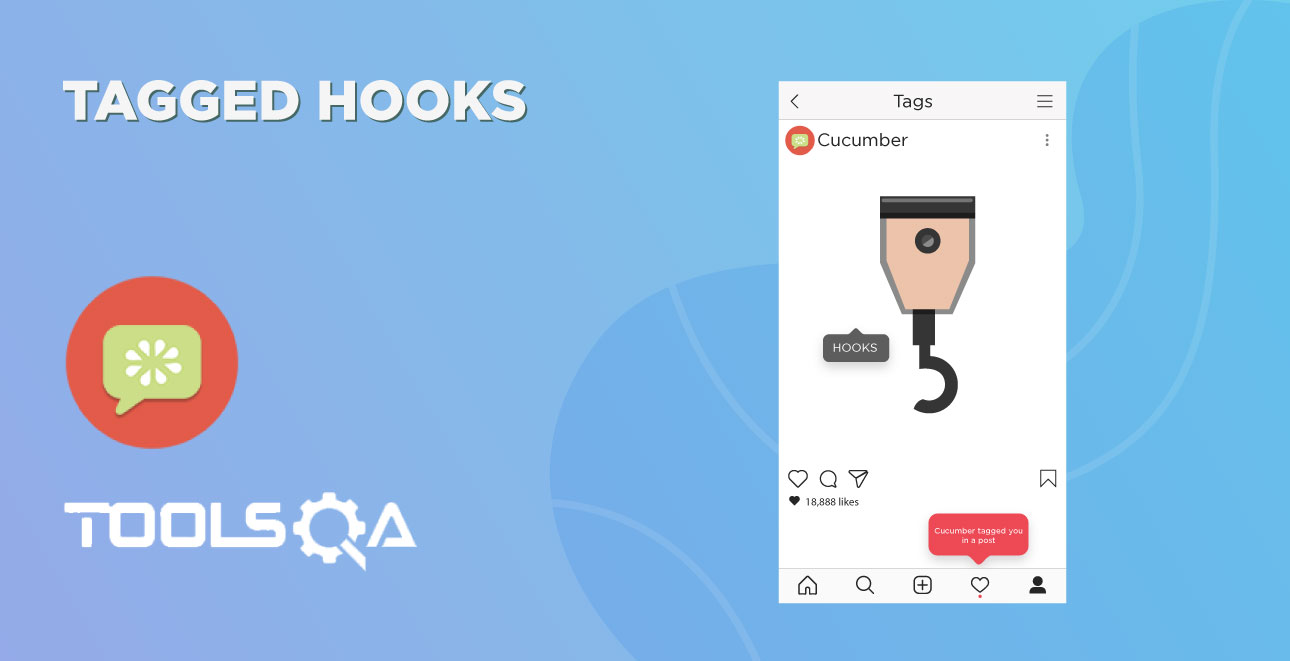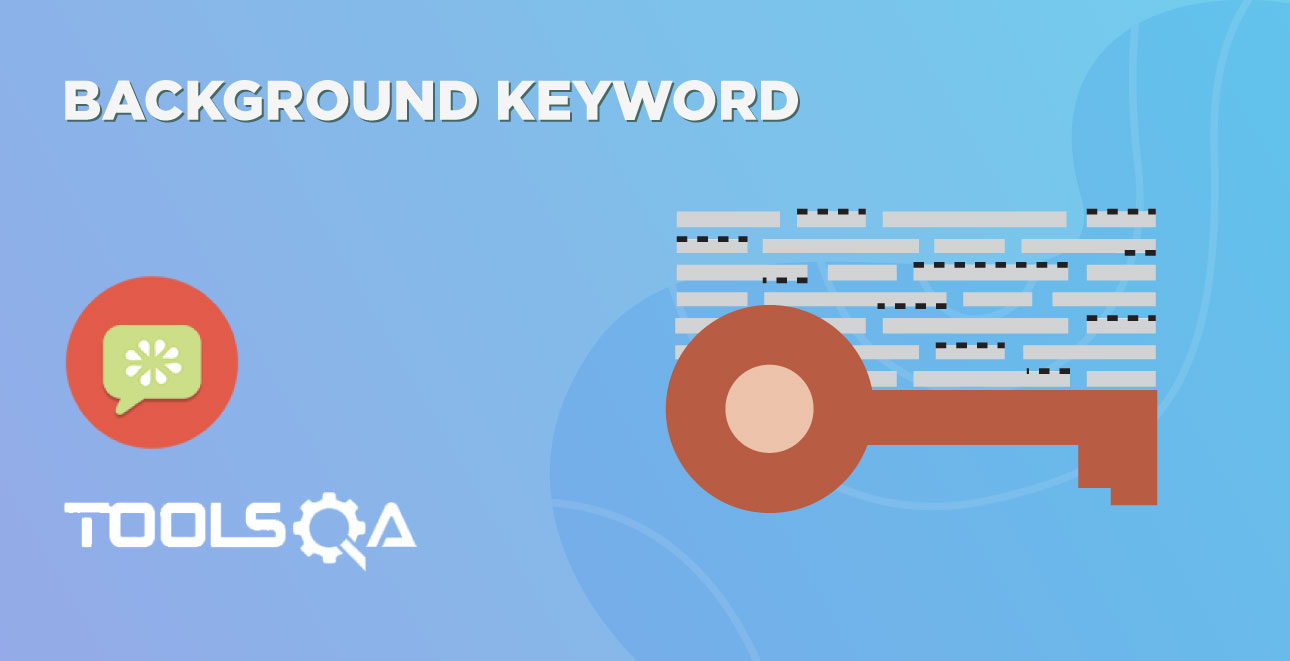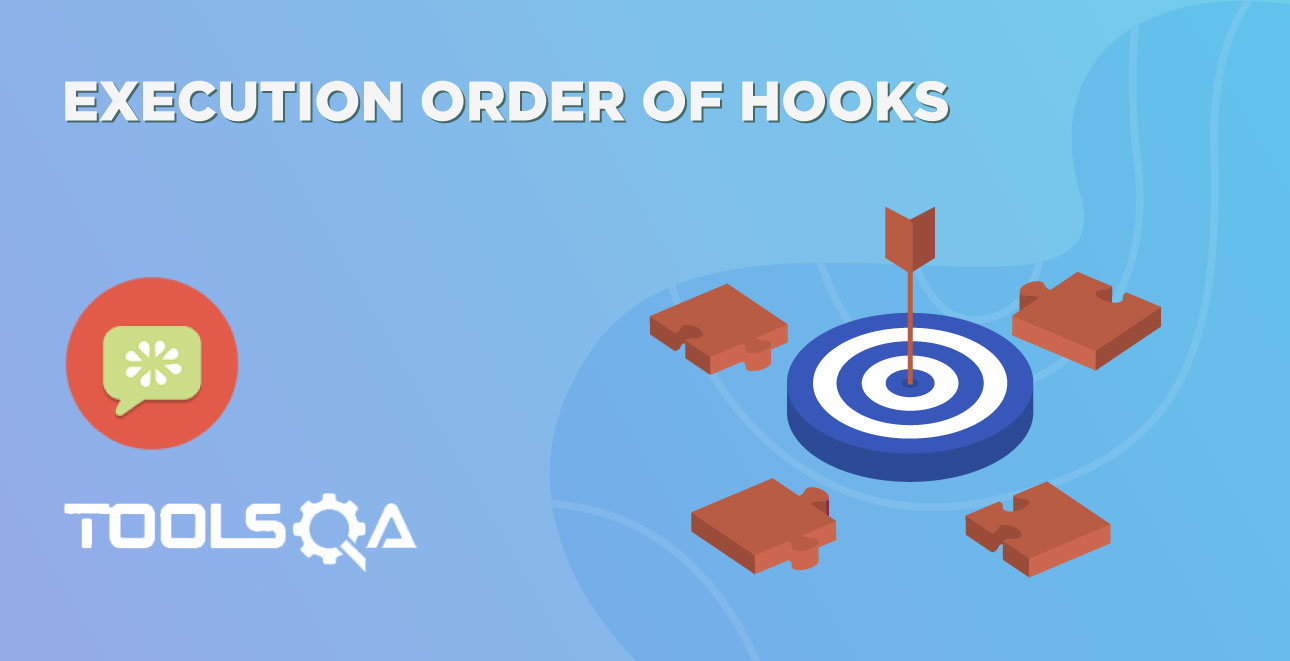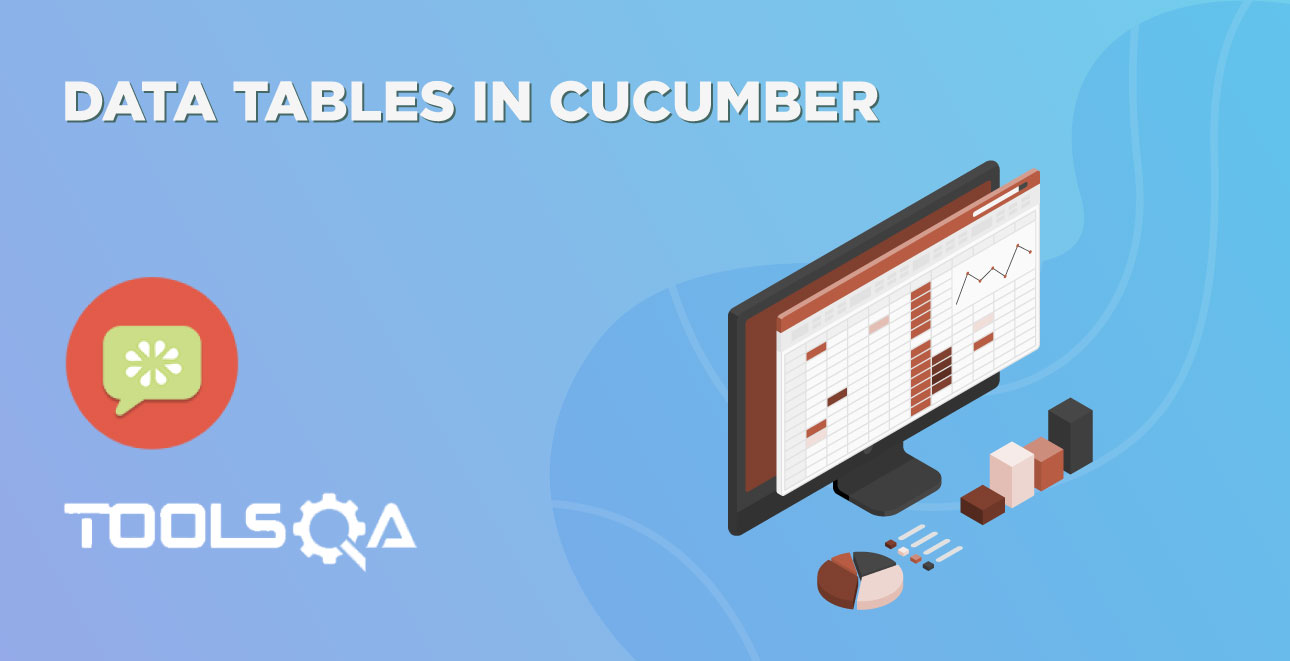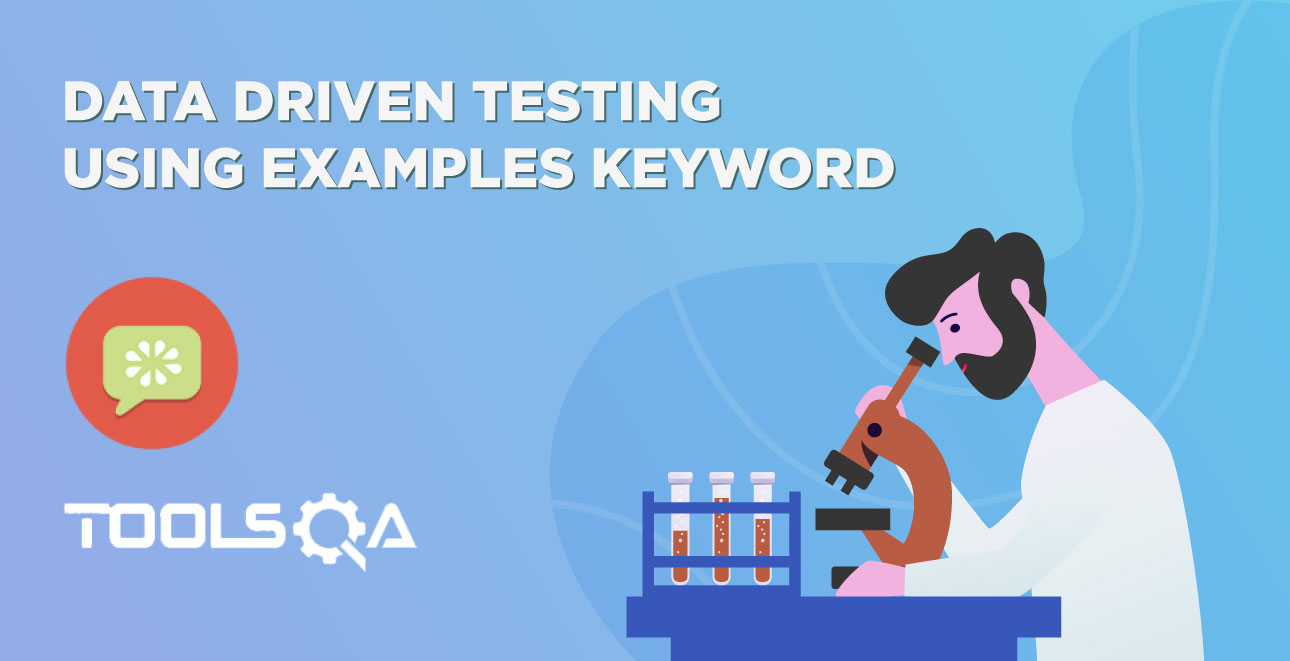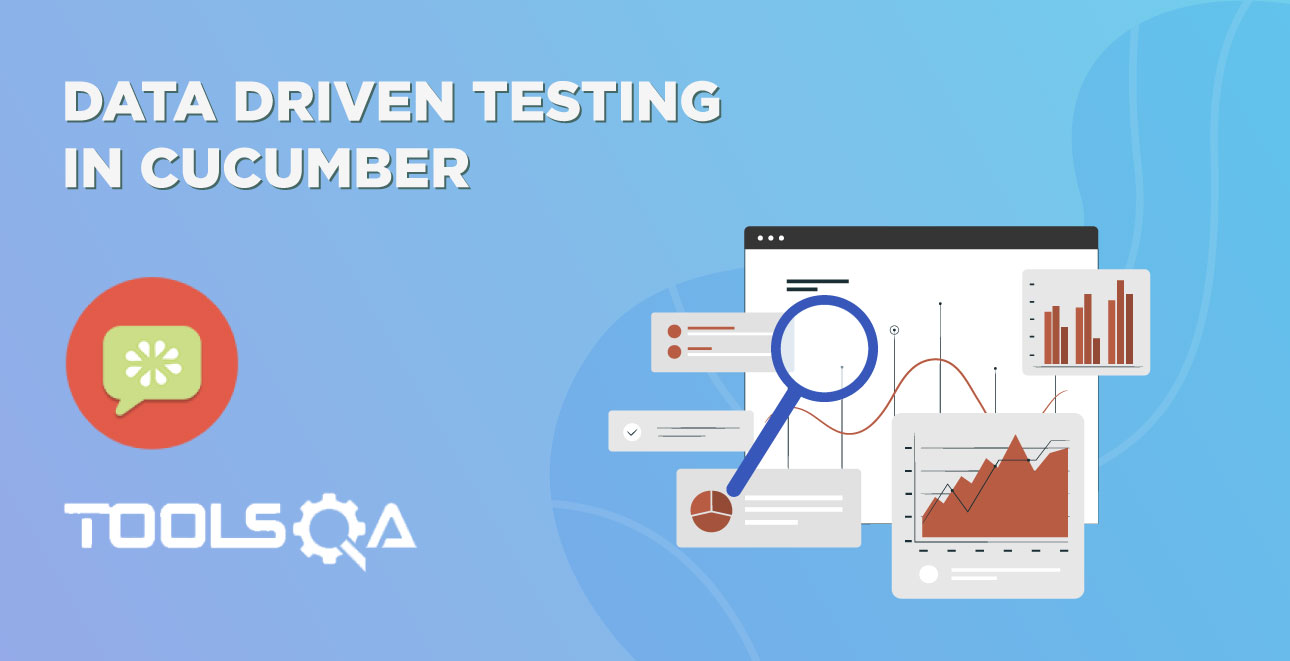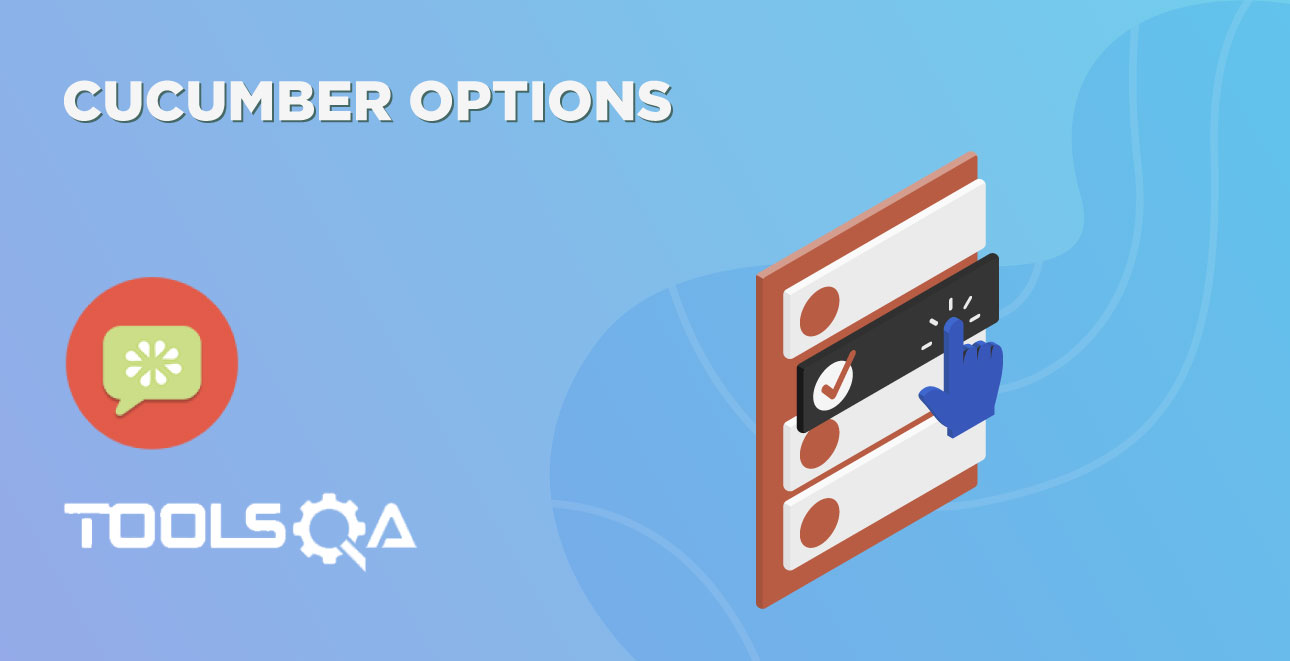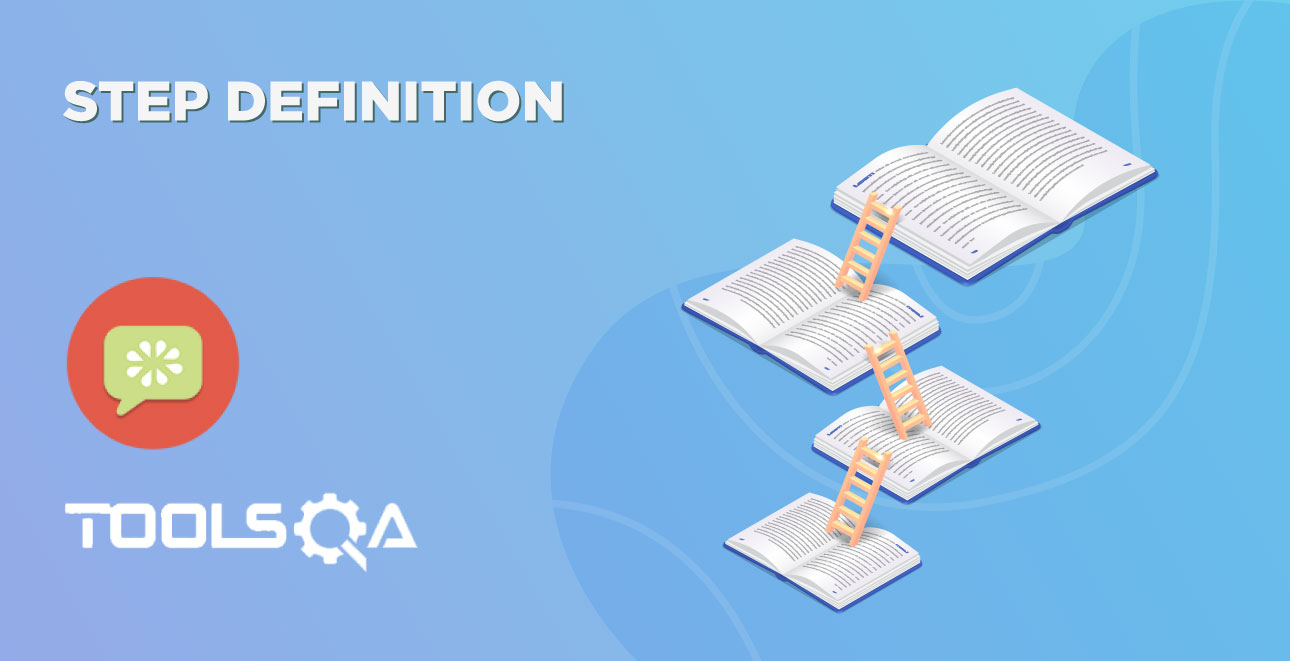What are Hooks in Cucumber?
Cucumber supports hooks, which are blocks of code that run before or after each scenario. You can define them anywhere in your project or step definition layers, using the methods @Before and @After. Cucumber Hooks allows us to better manage the code workflow and helps us to reduce the code redundancy. We can say that it is an unseen step, which allows us to perform our scenarios or tests.
Why Cucumber Hooks?
In the world of testing, you must have encountered the situations where you need to perform the prerequisite steps before testing any test scenario. This prerequisite can be anything from:
- Starting a webdriver
- Setting up DB connections
- Setting up test data
- Setting up browser cookies
- Navigating to certain page
- or anything before the test
In the same way, there are always after steps as well of the tests like:
- Killing the webdriver
- Closing DB connections
- Clearing the test data
- Clearing browser cookies
- Logging out from the application
- Printing reports or logs
- Taking screenshots on error
- or anything after the test
To handle these kinds of situations, cucumber hooks are the best choice to use. Unlike TestNG Annotaions, cucumber supports only two hooks (Before & After) which works at the start and the end of the test scenario. As the name suggests, @before hook gets executed well before any other test scenario, and @after hook gets executed after executing the scenario.
How to implement Hooks in Cucumber Test
Let's do some easy and small examples of Cucumber Hooks just to understand the concept. I will bring the intelligent usage of Hooks in my later tutorial series of Designing Framework with Cucumber.
Test Hooks with Single Scenario
Feature File
Feature: Test Hooks
Scenario: This scenario is to test hooks functionality
Given this is the first step
When this is the second step
Then this is the third step
Step Definitions
package stepDefinition;
import cucumber.api.java.en.Given;
import cucumber.api.java.en.Then;
import cucumber.api.java.en.When;
public class Hooks_Steps {
@Given("^this is the first step$")
public void This_Is_The_First_Step(){
System.out.println("This is the first step");
}
@When("^this is the second step$")
public void This_Is_The_Second_Step(){
System.out.println("This is the second step");
}
@Then("^this is the third step$")
public void This_Is_The_Third_Step(){
System.out.println("This is the third step");
}
}
Note: There is no logic used in the step definitions. Just printing the step summary log.
Hooks
package utilities;
import cucumber.api.java.After;
import cucumber.api.java.Before;
public class Hooks {
@Before
public void beforeScenario(){
System.out.println("This will run before the Scenario");
}
@After
public void afterScenario(){
System.out.println("This will run after the Scenario");
}
}
Things to note
- An important thing to note about the after hook is that even in case of test fail, after hook will execute for sure.
- Method name can be anything, need not to be beforeScenario() or afterScenario(). can also be named as setUp() and tearDown().
- *Make sure that the package import statement should be import cucumber.api.java.After; & import cucumber.api.java.Before;
Often people mistaken and import Junit Annotations, so be careful with this.
Output
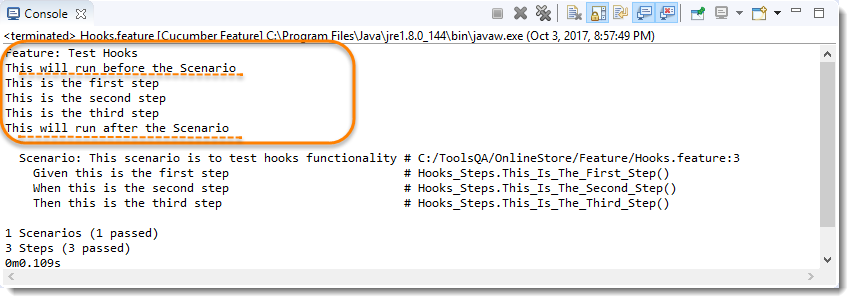
No need for explanation, it is self-explanatory :)
Test Hooks with Multiple Scenarios
I just wanted to show you the reaction of Hooks with the multiple scenarios. Let's just add one more Test Scenario in the feature file and run the feature again.
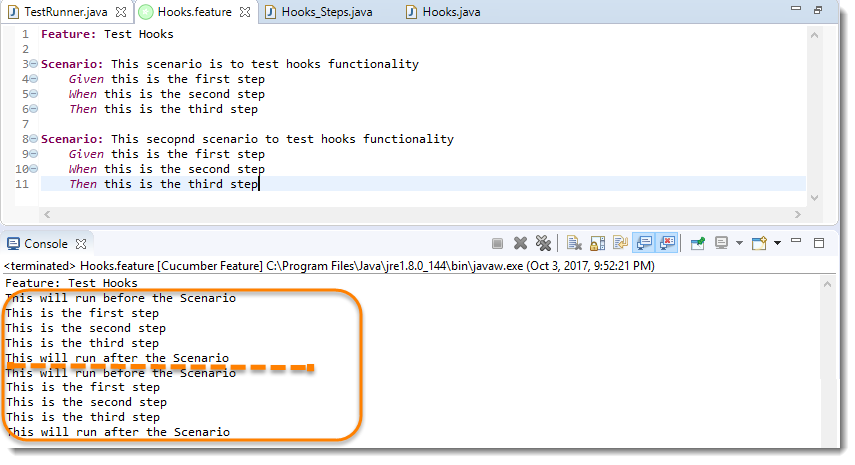
Note: Scenario Hooks execute before and after every scenario. In the above example, executed two times for two scenarios.
Test Hooks with Example Scenarios
Lets take a look when we have Scenario Outline with Examples.
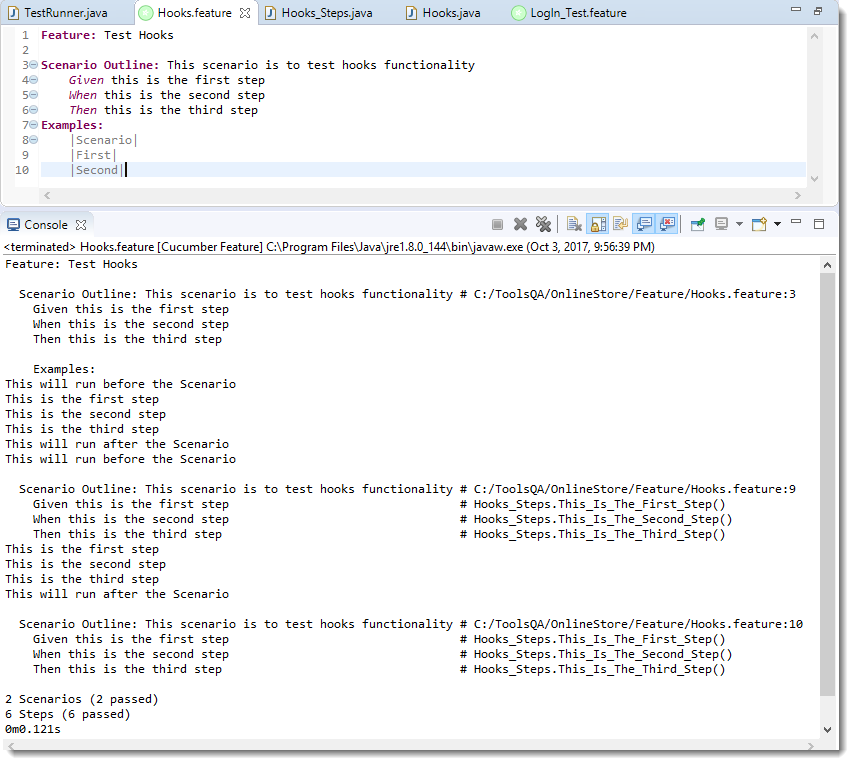
Note: Again, in cucumber, every example is considered as a separate scenario. So the output is the same as the second example above.

